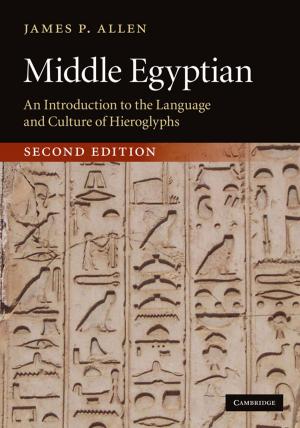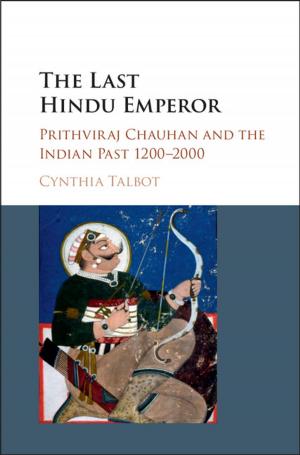Modernism, Imperialism and the Historical Sense
Fiction & Literature, Literary Theory & Criticism, British| Author: | Paul Stasi | ISBN: | 9781139508278 |
| Publisher: | Cambridge University Press | Publication: | July 30, 2012 |
| Imprint: | Cambridge University Press | Language: | English |
| Author: | Paul Stasi |
| ISBN: | 9781139508278 |
| Publisher: | Cambridge University Press |
| Publication: | July 30, 2012 |
| Imprint: | Cambridge University Press |
| Language: | English |
Modernist art and literature sought to engage with the ideas of different cultures without eradicating the differences between them. In Modernism, Imperialism and the Historical Sense, Paul Stasi explores the relationship between high modernist aesthetic forms and structures of empire in the twentieth century. Stasi's text offers new readings of James Joyce, Ezra Pound, T. S. Eliot and Virginia Woolf by situating their work within an early moment of globalization. By combining the insights of Marxist historiography, aesthetic theory and postcolonial criticism, Stasi's careful analysis reveals how these authors' aesthetic forms responded to, and helped shape, their unique historical moment. Written with a wide readership in mind, this book will appeal especially to scholars of British and American literature as well as students of literary criticism and postcolonial studies.
Modernist art and literature sought to engage with the ideas of different cultures without eradicating the differences between them. In Modernism, Imperialism and the Historical Sense, Paul Stasi explores the relationship between high modernist aesthetic forms and structures of empire in the twentieth century. Stasi's text offers new readings of James Joyce, Ezra Pound, T. S. Eliot and Virginia Woolf by situating their work within an early moment of globalization. By combining the insights of Marxist historiography, aesthetic theory and postcolonial criticism, Stasi's careful analysis reveals how these authors' aesthetic forms responded to, and helped shape, their unique historical moment. Written with a wide readership in mind, this book will appeal especially to scholars of British and American literature as well as students of literary criticism and postcolonial studies.















